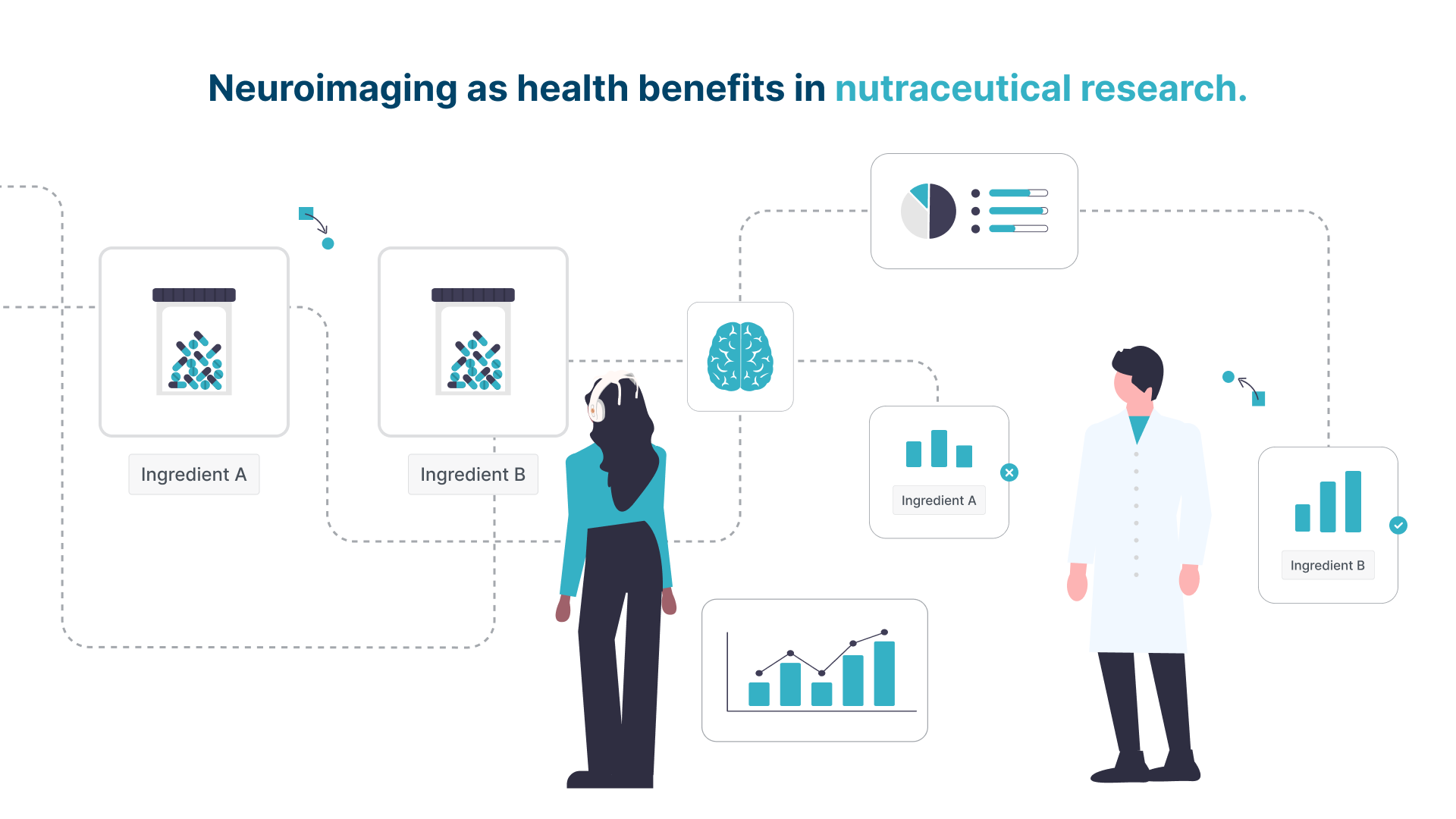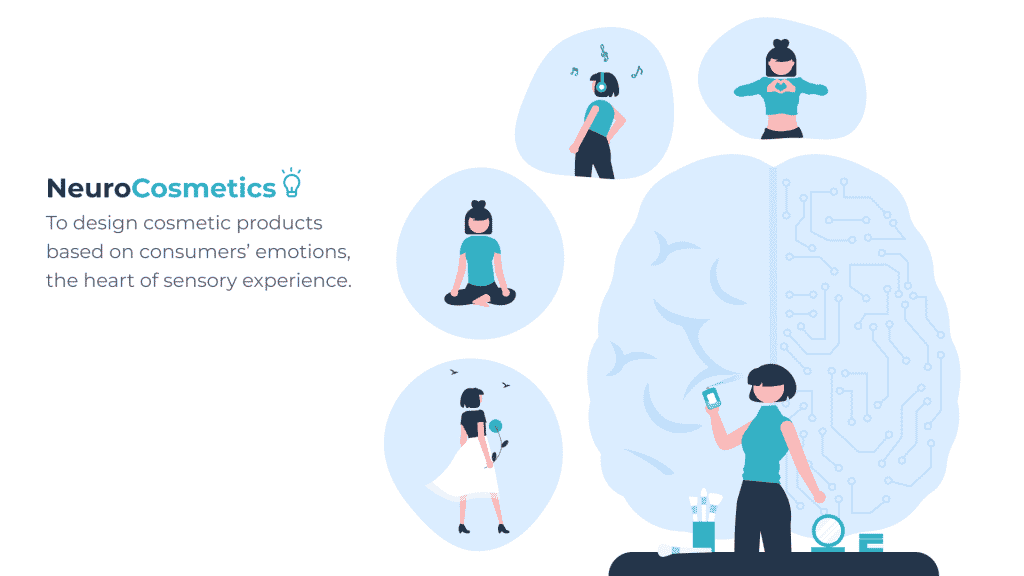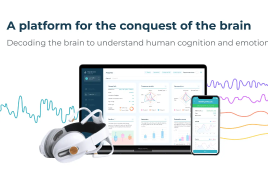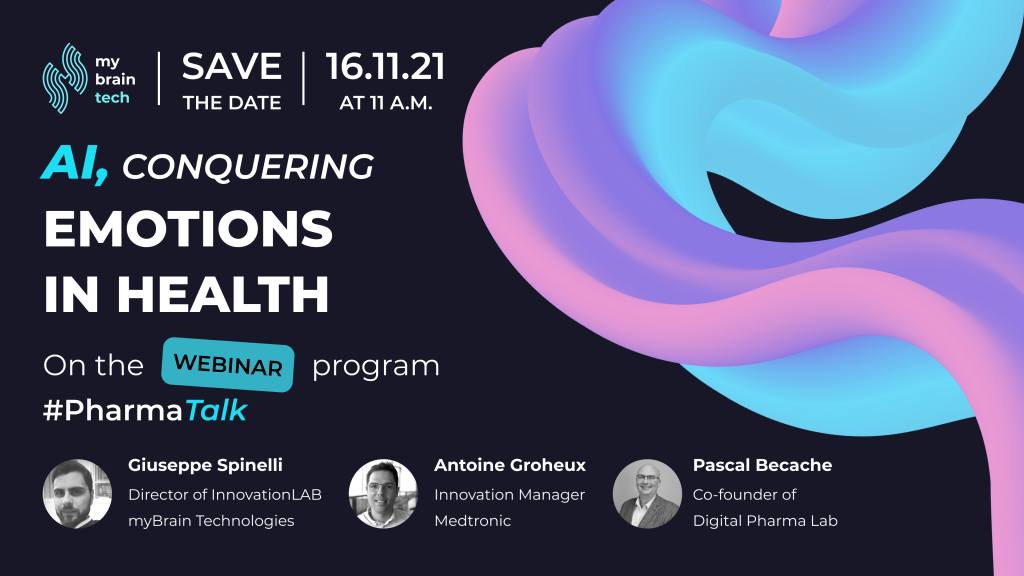A milestone for NeuroEthics.
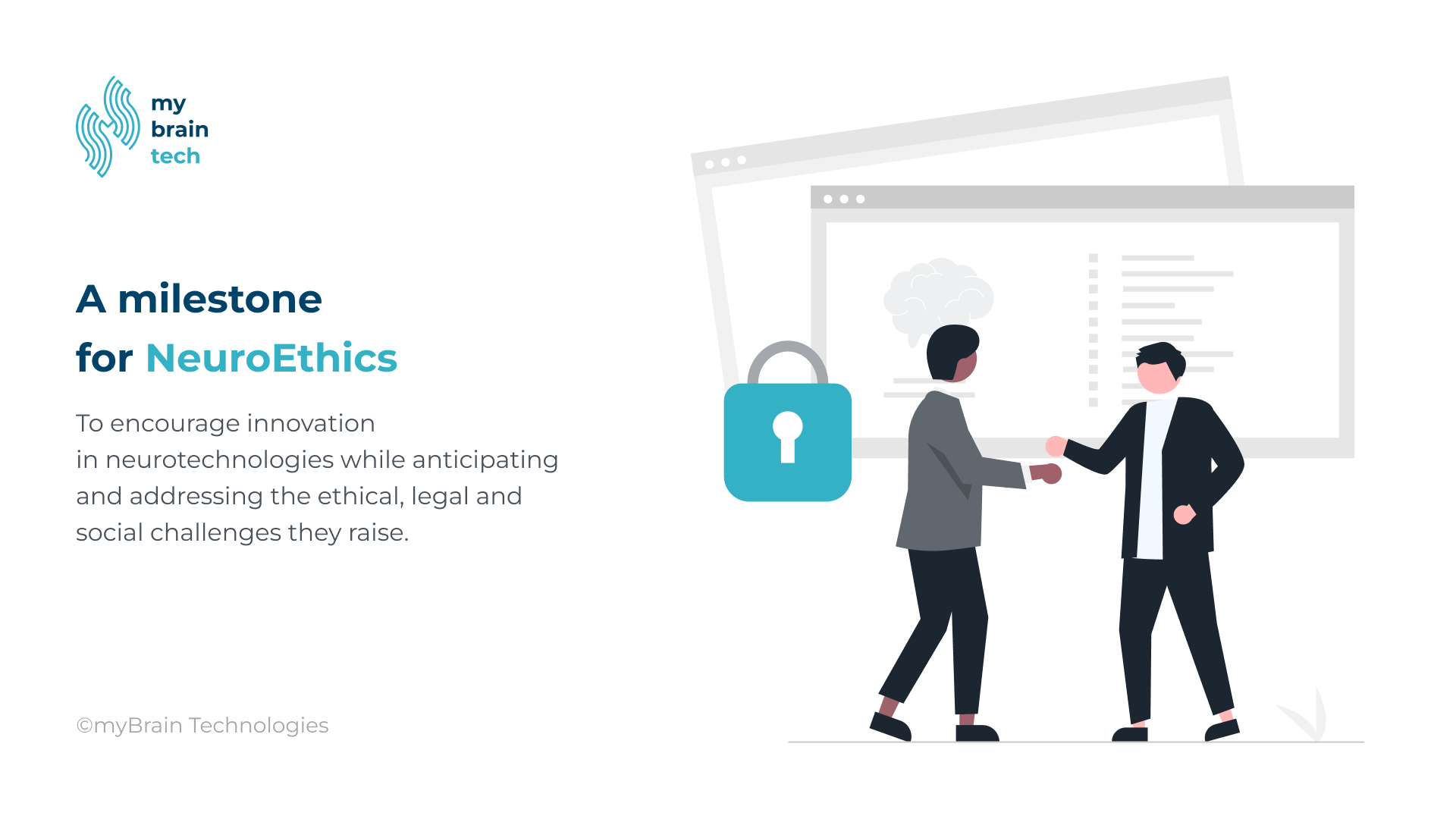
Neurotechnologies are no longer confined to research laboratories. They are fully integrated in our societies, whether in the medical field or beyond. The capacity of these technologies to probe and interfere with the brain activity of an individual questions the notions of identity, integrity and autonomy of human beings.
Recent initiatives aim to help governments and innovators anticipate and address ethical, legal, and social challenges, while promoting innovation in this field (OECD, 2019)[1]. Already in 2013, the United States launched the Brain Initiative[2] while the European Union started the Human Brain Project[3]; two projects aimed at supporting researchers in understanding the brain. More recently, Chile is the first country to have introduced “neuro-rights”, targeting brain data to protect the mental integrity of individuals in the face of the development of brain-machine interfaces (2021)[4]. In France, in November 2022, the main players in the field signed the first Charter for the responsible development of neurotechnologies[5].
Identity.
Neurotechnologies hold great therapeutic promise in the field of mental health and beyond, enabling the fight against neurological and psychiatric diseases. However, it remains essential to protect the notion of identity, defined by the will of an individual to build his or her own life and exercise his or her freedom.
In order to protect patients, but also consumers, from potentially abusive and malicious uses of neurotechnologies, it is essential to invoke the notion of identity intrinsic to human beings. With respect to advances in neuroscience and neurotechnology, the principle of human dignity must be respected.
One of the potential applications of neurotechnology that poses an ethical problem concerns memory modification techniques that could one day rely on the implantation of a chip in the brain. It would then be possible to improve memory (i.e. memory enhancement), just as we improve, for example, cognitive abilities. Individuals could also choose to modify the content of their memory (i.e. memory manipulation).
In the latter case, these techniques can completely erase the memory, induce amnesia or reduce the emotional strength of a painful memory and reduce the risk of post-traumatic stress disorder. Memory erasure allows for the reconstruction of memories of past events and, therefore, personal identity. It becomes problematic when the choice of memory content is imposed by a third party or if the person concerned is not aware of the full impact of his/her decision.
Mental integrity.
The Charter for the responsible development of neurotechnologies also aims at preserving the physical and psychological integrity of individuals by creating a special legal status. The goal is to make it impossible to increase, decrease or disrupt this individual integrity without the appropriate consent.
“Reading the brain” can have very complex personal consequences and social effects. Here, this particularly concerns data detected incidentally by means of brain imaging or encephalography and revealing psychological states of which the subject is unaware. These data can be obtained without the subject’s knowledge, and therefore without his or her consent, or even without the subject being aware that the information is being collected.
Mental integrity is a primary value in the face of the direct prejudice that neurotechnologies can cause if there is an unauthorized alteration of a person’s neural computing system. From this perspective, “prejudice” refers to the violation of integrity, and “benefit” to its preservation.
Human dignity being the fundamental value recognized in the doctrine of human rights and inscribed in the UNESCO Universal Declaration on Bioethics and Human Rights[6].
Autonomy.
Advances in computational neuroscience offer new opportunities to improve understanding of brain disorders, identify new biomarkers, design intelligent decision support systems, and develop many other applications. Thanks to intelligent neurotechnology systems and AI-based algorithms, computational neuroscience is one of the fastest growing areas of neuromedical research and innovation. However, these advances also raise important ethical, legal, philosophical, social and political questions.
The creation of “cognitive machines” involves the efficient integration of dynamic data acquisition and machine learning algorithms that enable rapid decision making which can interfere with an individual’s autonomy.
These machine learning programs learn to analyze data by generating algorithms that cannot be predicted and that are difficult, if not impossible, to explain. Thus, an unknown, and sometimes uncontrollable, process is formed between a person’s thoughts and the technology that acts in their place (Drew, 2019)[7].
The use of these AI tools reinforces the questions in the above-mentioned fields, of which the regulatory bodies have little experience. It is therefore essential to guarantee full transparency on the use of algorithms.
In conclusion.
The rise of neurotechnologies brings hope in the medical field and beyond. It is the duty of the authorities to protect patients and consumers against potentially abusive and malicious uses. Neuroscience stakeholders in the United States, France, and South America are laying the groundwork for international standards in this area.
Protecting identity, mental integrity and autonomy is essential as stated in the charter for the responsible development of neurotechnologies and brain-machine interfaces. It is also necessary to guarantee transparency on the use of algorithms as well as the reliability and safety of medical devices.
References.
[1] Recommendation of the Council on Responsible Innovation in Neurotechnology. (2019, December 11). OECD Legal Instruments. https://legalinstruments.oecd.org/en/instruments/OECD-LEGAL-0457
[2] The Brain Initiative: Brain Research through Advancing Innovative Neurotechnologies. (2013, April 02). The White House President Barack Obama. https://obamawhitehouse.archives.gov/BRAIN
[3] Welcome to the Human Brain Project. (2013, October 01). Human Brain Project. https://www.humanbrainproject.eu/en/
[4] Chile: Pioneering the protection of neurorights. (2022, January). The UNESCO Courier. https://en.unesco.org/courier/2022-1/chile-pioneering-protection-neurorights
[5] Présentation de la charte française de l’innovation responsable en neurotechnologies. (2022, November 14). Ministère de l’enseignement supérieur et de la recherche. https://www.enseignementsup-recherche.gouv.fr/fr/presentation-de-la-charte-francaise-de-l-innovation-responsable-en-neurotechnologies-87967
[6] Universal Declaration on Bioethics and Human Rights. (2005, October 19). UNESCO. https://www.unesco.org/en/legal-affairs/universal-declaration-bioethics-and-human-rights
[7] Drew, L. (2019). The ethics of brain-computer interfaces. Nature, 571(7766), S19. https://doi.org/10.1038/d41586-019-02214-2
Related Articles
Get in touch
We are glad you are interested in reaching out to us. Whether you have a question about our products or want to give us feedback, we are here to help.


